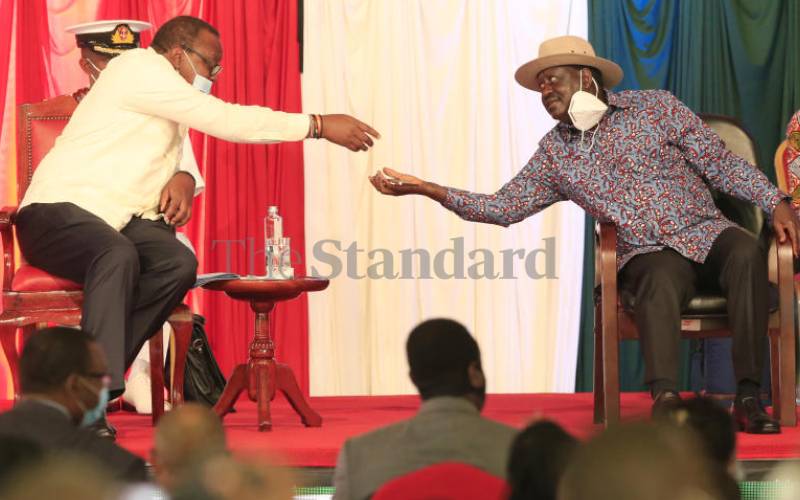×
The Standard e-Paper
Stay Informed, Even Offline

The BBI debacle in the High Court has left President Uhuru Kenyatta and ODM leader Raila Odinga on shaky legal ground and in an awkward political place.
The two leaders have often touted BBI as their gift to future generations. With just about 14 months left to next year’s General Election, it is doubtful there will be ample time to address the 21 flaws that the five-judge bench unanimously cited, while throwing the Constitution of Kenya (Amendment) Bill, 2020 to the rubbish heap.